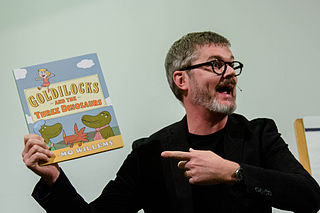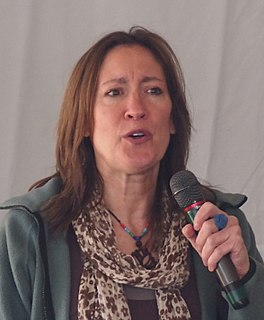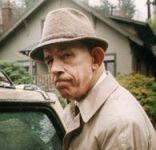A Quote by Mo Willems
Elephant and Piggie could just Google themselves! With the Elephant & Piggie Like Reading! series, we're picking artists who have a voice already. They have a sensibility. I don't want to make a book about blades of grass. That doesn't interest me. I want to make a book that Laurie Keller uses to express herself in this format. That's the key. That's what's going to keep it individual.
Related Quotes
The common thread of the series is that these are the books that Elephant and Piggie like to read. Elephant and Piggie are retired, so this is what they do in their spare time. What will they end up wanting to read? Time will tell. We've got to let that evolution happen as the series goes on. Any return of a character would have to be organic, would have to be, for example, Laurie Keller saying, hey, I really want to do this, and me feeling that there's a story there, rather than just saying, yeah, we can get three books out of these characters.
I had to be careful. A mistake I made when I submitted ideas initially was that one of them was too much like Elephant and Piggie, thinking that was what it needed to be. That's not what Mo was looking for. But I did definitely keep them in the back of my mind. It was tricky. Like Mo Willems was saying, it had to be something that Elephant and Piggie would like to read, yet we shouldn't make anything that was too much like Elephant and Piggie, because why would you want to do that?
But as the work proceeded I was continually reminded of the fable about the elephant and the tortoise. Having constructed an elephant upon which the mathematical world could rest, I found the elephant tottering, and proceeded to construct a tortoise to keep the elephant from falling. But the tortoise was not more secure than the elephant, and after some twenty years of very arduous toil, I came to the conclusion that there was nothing more that I could do in the way of making mathematical knowledge indubitable.
Psychotherapy can help some people, especially people who are neurotic, who are always making problems for themselves. We are like a rider on an elephant. We can steer the elephant, and if he's not busy, he'll go where we want, but if he has other desires, he'll go where he wants. They need to get a better relationship between the rider and the elephant. In part, you get it just from watching yourself stumble around in life, make mistakes, then read a little psychology and stop blaming yourself. Realize that I am flawed. I am complicated. I am divided, and I'm doing the best I can.
When you make a decision, you don't have to be locked into it. One of the ways that you grow is by starting over. There are all kinds of really powerful things in that moment, which is what makes story work. Part of Laurie's Keller personality is this ability to revise, to come back and to look at things from a different angle. I don't want to tell stories too much out of school, but Laurie Keller is the only person who sent me a card on my birthday and then sent me a revision.
I also learn a lot about everybody else's process. People create in different ways, so that has opened me up to different processes and experimenting. Laurie Keller is a character person, so she came to the project with these blades-of-grass characters that we were able to literally grow a story around.
When we want a book exactly like the one we just finished reading, what we really want is to recreate that pleasurable experience--the headlong rush to the last page, the falling into a character's life, the deeper understanding we've gotten of a place or a time, or the feeling of reading words that are put together in a way that causes us to look at the world differently. We need to start thinking about what it is about a book that draws us in, rather than what the book is about.
I began writing books after speaking for several years and I realize that when you have a written book people think that you're smarter than you really are if I can joke. But it's interesting. People will buy your book and hire you without reading the book just because you have a book and you have a book on a subject that they think is of interest to themselves or e to their company.
If you want to write about a person who isn't nice, people say, "This is a bad book. It's about somebody I couldn't stand." But that's not the point. You don't have to like a character to like a book. Most of the time, people would misjudge and say, "I didn't like the book." No, you didn't like the character. That doesn't make it any less interesting of a book. In fact, to me, it makes it more interesting.

































